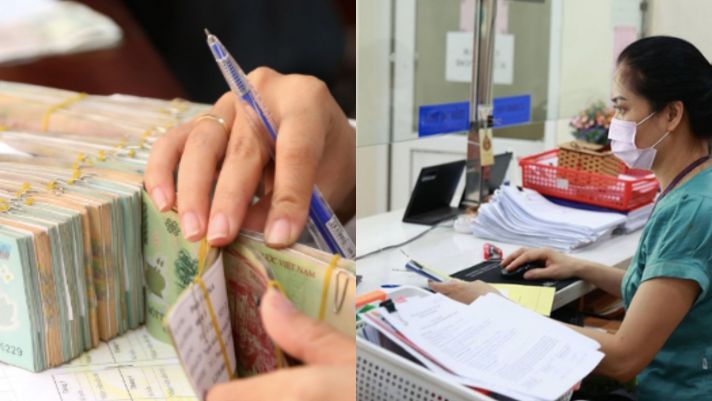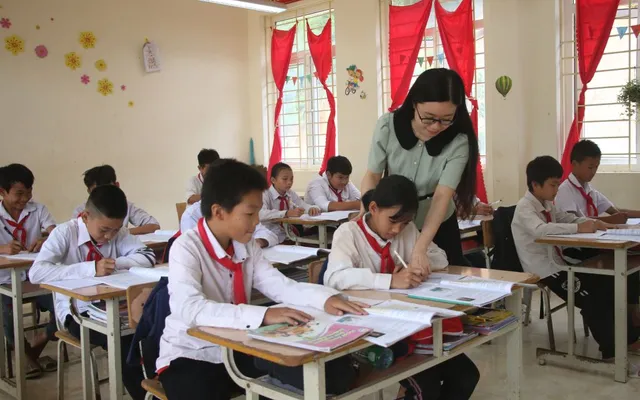Prime Minister of Vietnam requests strong and effective implementation of general inventory of public assets tasks
Recently, the Prime Minister of Vietnam has requested the strong and effective implementation of general inventory of public assets tasks.

Prime Minister of Vietnam requests strong and effective implementation of general inventory of public assets tasks (Image from the internet)
On December 20, 2024, the Prime Minister of Vietnam issued Official Telegram 138/CD-TTg on the implementation of a comprehensive inventory of public assets at agencies, organizations, units, and infrastructure assets invested and managed by the State.
Prime Minister of Vietnam requests strong and effective implementation of general inventory of public assets tasks
To ensure the completion of the Comprehensive Inventory of Public Assets as assigned by the National Assembly, there must be correct awareness, high determination, great effort, decisive, and effective action.
The Prime Minister of Vietnam requests Ministers, Heads of ministerial-level agencies, agencies under the Government of Vietnam, other central agencies, Chairmen of People's Committees of provinces and centrally-run cities, Heads of the Inventory Steering Committees of ministries, ministerial-level agencies, agencies under the Government of Vietnam, other central agencies, provinces, centrally-run cities to focus on leadership, guidance, and decisively and effectively implement the Comprehensive Inventory of Public Assets according to Scheme 213; focusing on the following key tasks and solutions:
- Ministries, central agencies, and localities that have not issued the Comprehensive Inventory Plan, have not conducted inventory training are responsible for issuing plans, organizing guidance, and fully training the contents of the Scheme, inventory criteria, and the integration and reporting of inventory results to all inventory subjects within the management scope of ministries, central agencies, and localities. Deadline: Before December 23, 2024.
- Closely follow Scheme 213, the Implementation Plan of the Comprehensive Inventory of Public Assets issued by the Ministry of Finance, ministries, central authorities, and local authorities to direct, urge, guide, and organize the full implementation of contents according to regulations, ensuring to achieve and exceed the schedule, preventing delays that affect the results and schedule of the national Comprehensive Inventory. Use inventory results as the basis for assessing the completion of tasks by agencies, organizations, units, and their leaders. Promptly reward collectives and individuals with outstanding achievements in preparing and organizing the Comprehensive Inventory. Criticize, remind and handle the responsibility of collectives, individuals who fail to comply or do not seriously comply with the plan and regulations related to the Comprehensive Inventory.
- Direct agencies, organizations, and units to review, enhance the accounting, management, and usage of public assets, ensuring a full inventory of existing assets, accurate information about the assets as per the Ministry of Finance's guidelines. Link the asset inventory with the practice of thrift and waste prevention according to the Communist Party's guidelines and the State's policies and laws as directed by General Secretary To Lam. Immediately during the inventory process, if assets are discovered not in use, not used for the intended purpose, or used inefficiently, promptly handle according to authority or report to superior authorities for handling, not waiting until the completion of the Comprehensive Inventory, ensuring public assets are used appropriately, economically, and effectively.
For ministries, central agencies, organizations, units undergoing consolidation, merger, division, cessation of activities, transferring functions, tasks to other organizations, units due to streamlining of the organization, still have to perform the Comprehensive Inventory duties until officially consolidated, merged, divided, ceased activities, and are responsible for handing over ongoing and completed tasks to new ministries, central agencies, organizations, units; ministries, central agencies, organizations, units after consolidation, merger, division are responsible for continuing remaining tasks, ensuring organizational streamlining does not affect the implementation of Scheme 213, does not cause loss of State assets.
- Assign the Ministry of Finance to organize the inspection of the preparation and implementation of the Comprehensive Inventory of ministries, central agencies, provinces, and centrally-run cities; ministries, central agencies, provincial-level People's Committees to inspect the implementation of the comprehensive inventory, report inventory results of agencies, organizations, units under management, focusing on subjects with large scale assets and units, complex assets, and slowly deployed schedules. Sectoral management ministries according to Scheme 213 are responsible for closely coordinating with the Ministry of Finance during the Comprehensive Inventory guidance and data aggregation process.
- Assign the Ministry of Finance to regularly update the progress of the national Comprehensive Inventory, of each ministry, central authority, and local authority, periodically reporting to the Prime Minister of Vietnam and publicly disclosing on mass media; promptly aggregate inventory data and propose solutions, mechanisms, policies, build databases and organize management to promote the Comprehensive Inventory results, enhance the effectiveness and efficiency of public asset management, use, and exploitation, report to competent authorities.
- Ministers, Heads of central agencies, Chairmen of People’s Committees of provinces, centrally-run cities, Heads of the Inventory Steering Committees of ministries, central agencies, localities are responsible for the progress and quality of reporting Comprehensive Inventory results according to Scheme 213, promptly report to the Prime Minister of Vietnam and the Deputy Prime Minister of Vietnam in charge of matters beyond authority.
Official Telegram 138/CD-TTg issued on December 20, 2024.
- Key word:
- Prime Minister of Vietnam
- public assets
- Number of deputy directors of departments in Vietnam in accordance with Decree 45/2025/ND-CP
- Cases ineligible for pardon in Vietnam in 2025
- Decree 50/2025 amending Decree 151/2017 on the management of public assets in Vietnam
- Circular 07/2025 amending Circular 02/2022 on the Law on Environmental Protection in Vietnam
- Adjustment to the organizational structure of the Ministry of Health of Vietnam: Certain agencies are no longer listed in the organizational structure
- Vietnam aims to welcome 22-23 million international tourists in Vietnam in 2025
-

- Decree 50/2025 amending Decree 151/2017 on the ...
- 12:00, 05/03/2025
-

- Prime Minister of Vietnam directs various measures ...
- 17:37, 04/03/2025
-

- Regulations on the sale of public assets by auction ...
- 15:00, 03/03/2025
-

- Prime Minister of Vietnam directs to accelerate ...
- 19:30, 20/02/2025
-

- Prime Minister of Vietnam requests to enhance ...
- 15:30, 10/02/2025
-

- Notable new policies of Vietnam effective as of ...
- 16:26, 11/04/2025
-
.Medium.png)
- Notable documents of Vietnam in the previous week ...
- 16:21, 11/04/2025
-
.Medium.png)
- Notable documents of Vietnam in the previous week ...
- 16:11, 02/04/2025
-
.Medium.png)
- Notable new policies of Vietnam to be effective ...
- 16:04, 02/04/2025
-
.Medium.png)
- Notable new policies of Vietnam effective from ...
- 14:51, 21/03/2025

 Article table of contents
Article table of contents
